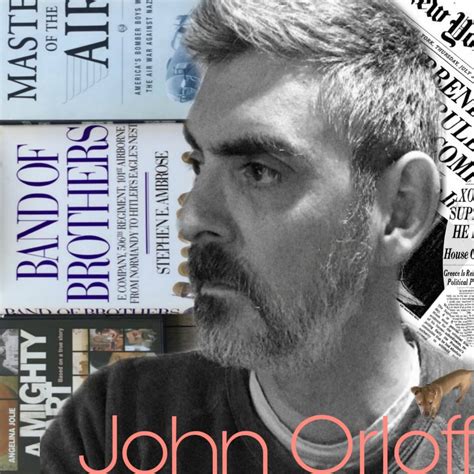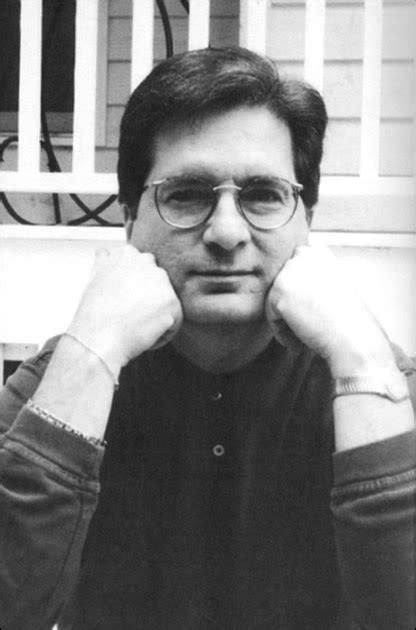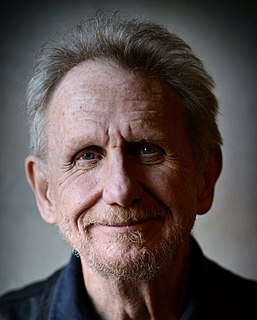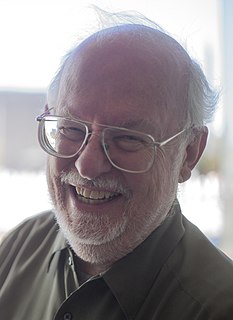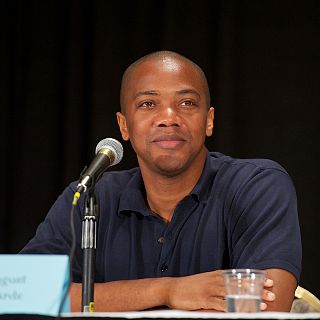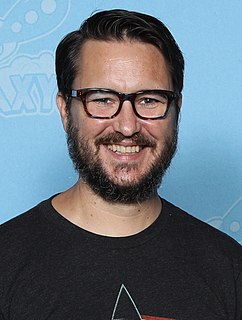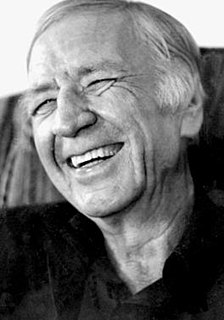Top 1200 Science Fiction Quotes & Sayings - Page 4
Explore popular Science Fiction quotes.
Last updated on December 4, 2024.
You look at science fiction and look how often it talks about being alien, being alienated about the other. Look at the number of blue people - 'Avatar,' I'm looking at you. And it is now easier to find people of color in science-fiction literature and media, but the issues of representation are still really, really troubling.
Very little in science fiction can transcend the gimmickry of a technical conceit, yet without that conceit at its heart a book is not truly science fiction. Furthermore, so little emerging thought and technology is employed by sf writers today that the genre is lagging far behind reality both in the cosmology area and the technology area: sf is no longer a place to experiment, but is now very derivative.
To those who think that all this sounds like science fiction, we point out that yesterday's science fiction is today's fact. The Industrial Revolution has radically altered man's environment and way of life, and it is only to be expected that as technology is increasingly applied to the human body and mind, man himself will be altered as radically as his environment and way of life have been.
I think the least important thing about science fiction for me is its predictive capacity. Its record for being accurately predictive is really, really poor! If you look at the whole history of science fiction, what people have said is going to happen, what writers have said is going to happen, and what actually happened - it's terrible.
I find it interesting that authors of fantasy and science fiction novels are rarely asked if their books are based on their personal experiences, because all writing is based on personal experience. I may not have gone on an epic quest through a haunted forest, but the feelings in my books are often based on feelings I've had. Real-life events, in fantasy and science fiction, can take on metaphorical significance that they can't in a so-called realistic novel.
In a way, being a Mormon prepares you to deal with science fiction, because we live simultaneously in two very different cultures. The result is that we all know what it's like to be strangers in a strange land. It's not just a coincidence that there are so many effective Mormon science fiction writers. We don't regard being an alien as an alien experience. But it also means that we're not surprised when people don't understand what we're saying or what we think.
Remember, science fiction's always been the kind of first level alert to think about things to come. It's easier for an audience to take warnings from sci-fi without feeling that we're preaching to them. Every science fiction movie I have ever seen, any one that's worth its weight in celluloid, warns us about things that ultimately come true.
I suppose that literature as it is won't die, science fiction included. But games are becoming an extremely important part of the science fiction world, including games that are adapted from books (or vice versa: books that are adapted from games). It's wonderful to have the opportunity to play and see your favorite characters on the screen, but the opportunity to read a book does not become less attractive.
Most of what I do is science fiction. Some of the things I do are fantasy. I don't like the labels, they're marketing tools, and I certainly don't worry about them when I'm writing. They are also inhibiting factors; you wind up not getting read by certain people, or not getting sold to certain people because they think they know what you write. You say science fiction and everybody thinks Star Wars or Star Trek.
Dad always said that he had enough trouble sorting the fiction out of so-called facts, without reading fiction. He always said that science was already too muddled without trying to make it jibe with religion. He said those things, but he also said that science itself could be a religion, that a broad mind was always in danger of becoming narrow.
I love science fiction but I don't like fantastic [cinema]. For example, if you have a magical ring and you can explode the world with it. What are we talking about? You know, it's not interesting. I don't like Lord of the Rings. Even Star Wars, for me, I don't understand this kind of story. But Alien, because the rules of the game are very precise, it could happen. I love science fiction. I have an idea about robots in the future.
If there’s a zeppelin, it’s alternate history. If there’s a rocketship, it’s science fiction. If there are swords and/or horses, it’s fantasy. A book with swords and horses in it can be turned into science fiction by adding a rocketship to the mix. If a book has a rocketship in it, the only thing that can turn it back into fantasy is the Holy Grail.
The films that I loved growing up were the science fiction films from the late seventies and early eighties [films], which were more about the people and how they are affected by the environments that they are in. Whether they are sort of futuristic or alien of whatever they are; that was the science fiction that I loved. So that is what we tried to make, the sort of film that felt like those old films.


